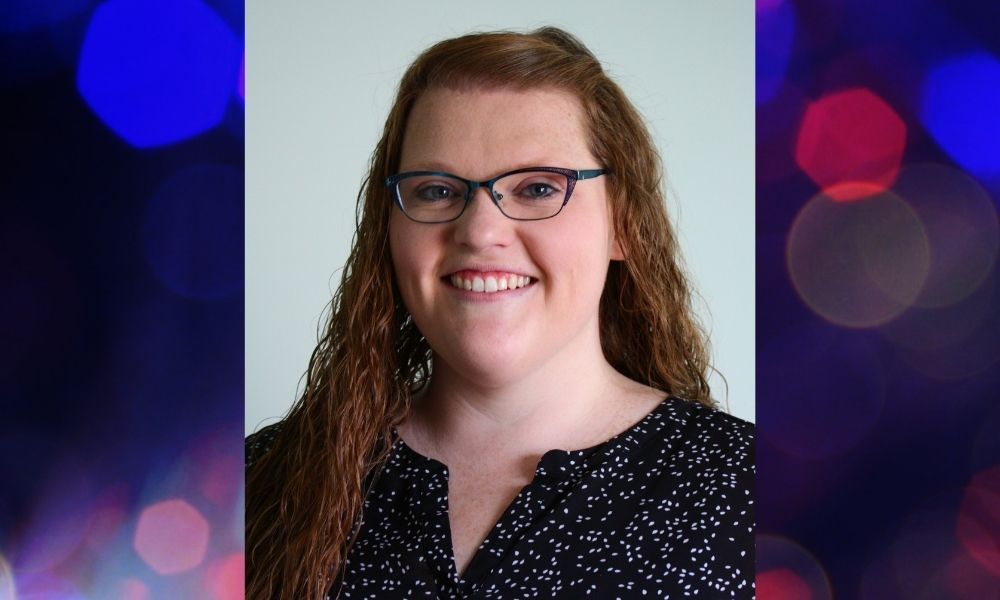Susanne Stevenson ‘19 was recently named Kansas Teacher of the Year by the Kansas State Department of Education (KSDE).
Stevenson was one of eight finalists nominated for excellence in teaching within elementary and secondary classrooms in Kansas. She is now a candidate for National Teacher of the Year.
She earned her Master of Science in Education with a concentration in English as a Second Language. Her undergraduate degree was completed at Emporia State University in 2014 where she earned a Bachelor of Science in Education.
Stevenson said pursuing a career in teaching started in high school when she participated in a preschool program. With the supervision of certified teachers, she and other classmates were introduced to what a teaching career could offer.
She was hooked. A decade later, Stevenson teaches fourth-graders in the Dodge City, Kansas, school district.
“For me, it’s truly the connection I’m able to build with my culturally and linguistically diverse students,” said Stevenson. “Four to five languages are represented in my classroom. Their world lens at 9 and 10 years old — it’s so cool to see.”
A career of fulfillment
Helping her students learn about their classmates’ worlds, and sharing and interacting with each other are things that bring her joy.
“When a new student comes into our class and feels unsure and shy, I put it on my kids to make this new one feel loved and included and they come through like troopers.”
After receiving her bachelor’s degree and beginning her teaching career, Stevenson knew she wanted to learn more, specifically in the field of diversity. She found Newman University’s English as a Second Language concentration to be just the right fit.
Her experience with the online 18-month program was enjoyable. She had heard about the program through her district and found it to be flexible and relevant.
“The professors were actual teachers walking the walk and talking the talk — they were able to give me real examples from the classrooms,” she said. “It really validated what they were teaching and what I thought was important.”

One of Stevenson’s favorite teaching methods is called biography-driven instruction. This method is focused on communicating in a way that optimizes a student’s potential for learning when there is a language barrier.
She said, “As a teacher, it’s my responsibility to dig into my students and their biography, and pull out individual assets. Then I need to take that world lens and understanding and use it as a springboard, bridging my academic world with it.”
Learning through teaching
Stevenson uses many visuals and pictures to help bridge language gaps.
“One of my favorites is linking languages. If they are learning about electricity, I’ll find pictures of vocabulary words dealing with those words. They write what they know in that photo and I can gauge what they know already.”
When Stevenson found out she’d been chosen as the 2021 Kansas Teacher of the Year, she was excited and humbled.
“We talk a lot about ‘imposter syndrome,’ we think everyone else knows so much more than us. As educators, we’re so eager to soak up and learn as much as we can and can be the worst at celebrating ourselves. I had those thoughts of, ‘How is what I do worthy of this?’ I definitely had some imposter syndrome going on.”
But Stevenson said she is excited to travel to the other finalists’ districts throughout the coming year. She and seven finalists will even have the opportunity to speak to the Kansas Legislature. She plans on using that opportunity to advocate for education while focusing on learning as much as she can.
And continuing to teach her students the importance of acceptance and kindness will be her focus in the classroom.
“I would say that I try to instill this in my students and even for my future children — they’ll have knowledge and understanding of the world by learning from others. I want them to never forget that we can always learn something from everyone, no matter their station in life.”
Earn your Master of Science in Education
We work hard to ensure our students leave as even more caring and reflective practitioners who are intellectually, emotionally, and spiritually motivated to transform themselves, their school or organization, and society.

